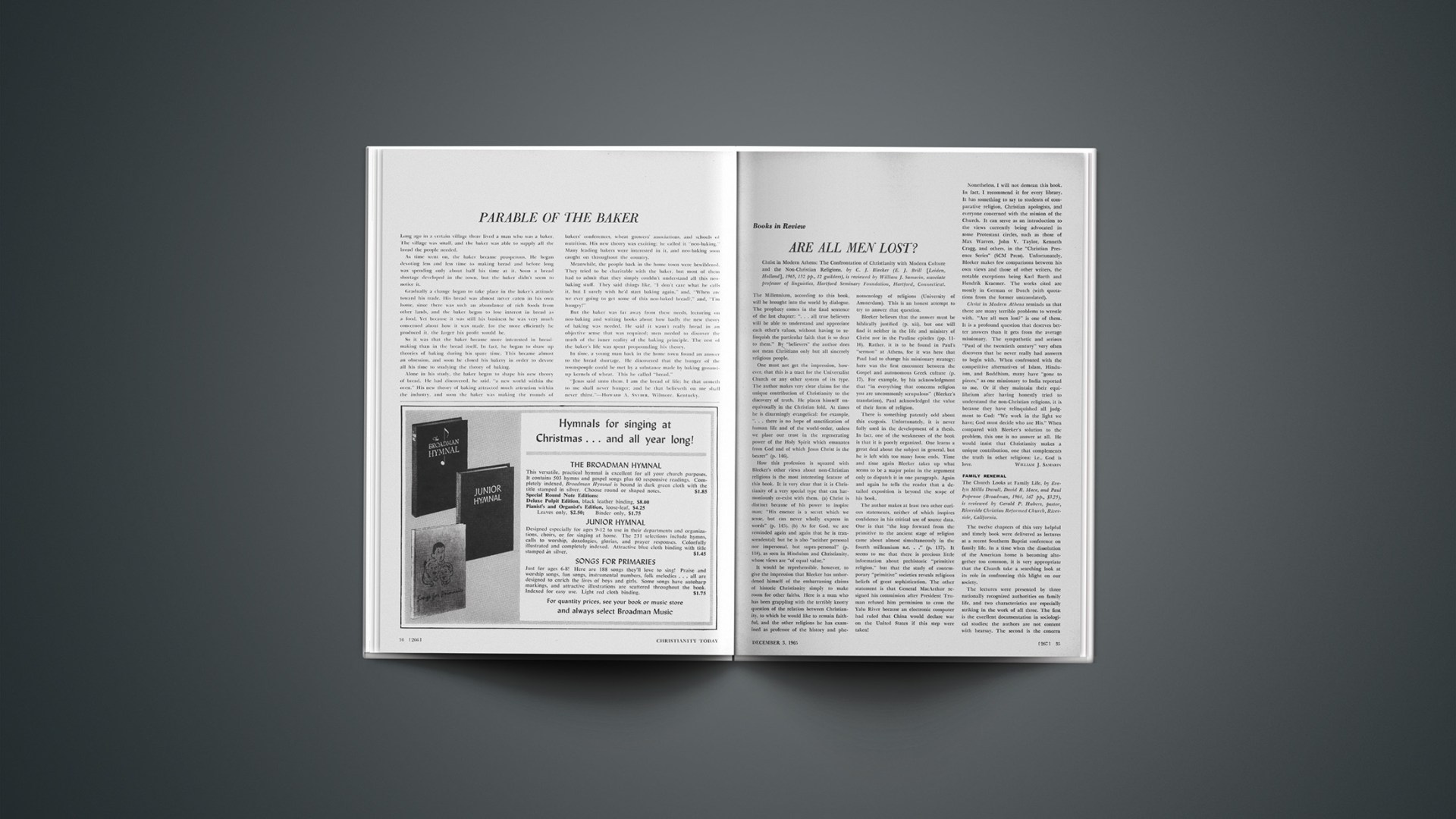Long ago in a certain village there lived a man who was a baker. The village was small, and the baker was able to supply all the bread the people needed.
As time went on, the baker became prosperous. He began devoting less and less time to making bread and before long was spending only about half his time at it. Soon a bread shortage developed in the town, but the baker didn’t seem to notice it.
Gradually a change began to take place in the baker’s attitude toward his trade. His bread was almost never eaten in his own home, since there was such an abundance of rich foods from other lands, and the baker began to lose interest in bread as a food. Yet because it was still his business he was very much concerned about bow it was made, for the more efficiently he produced it, the larger his profit would be.
So it was that the baker became more interested in bread-making than in the bread itself. In fact, he began to draw up theories of baking during his spare time. This became almost an obsession, and soon he closed his bakery in order to devote all his time to studying the theory of baking.
Alone in his study, the baker began to shape his new theory of bread. He had discovered, he said, “a new world within the oven.” His new theory of baking attracted much attention within the industry, and soon the baker was making the rounds of bakers’ conferences, wheat growers’ associations, and schools of nutrition. His new theory was exciting; he called it “neo-baking.” Many leading bakers were interested in it, and neo-baking soon caught on throughout the country.
Meanwhile, the people back in the home town were bewildered. They tried to be charitable with the baker, but most of them had to admit that they simply couldn’t understand all this neo-baking stuff. They said things like, “I don’t care what he calls it, but I surely wish he’d start baking again,” and, “When are we ever going to get some of this neo-baked bread?,” and, “I’m hungry!”
But the baker was far away from these needs, lecturing on neo-baking and writing books about how badly the new theory of baking was needed. He said it wasn’t really bread in an objective sense that was required; men needed to discover the truth of the inner reality of the baking principle. The rest of the baker’s life was spent propounding his theory.
In time, a young man back in the home town found an answer to the bread shortage. He discovered that the hunger of the townspeople could be met by a substance made by baking ground-up kernels of wheat. This he called “bread.”
“Jesus said unto them, I am the bread of life: he that cometh to me shall never hunger; and he that believeth on me shall never thirst.”
—HOWARD A. SNYDER, Wilmore, Kentucky.










